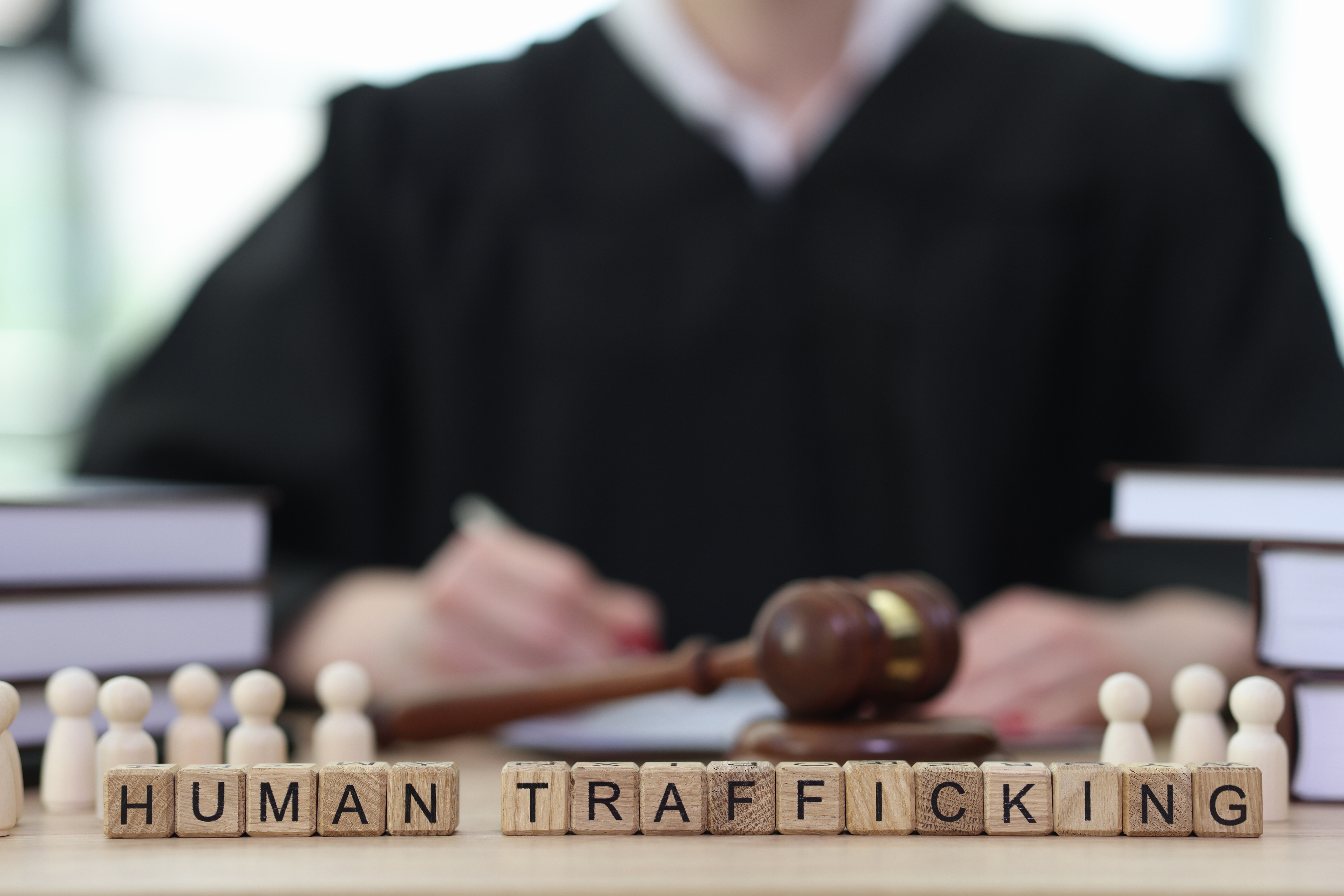ASTANA – In a recent article published on July 28 to mark World Day Against Trafficking in Persons, the UN highlighted the human trafficking situation in Kazakhstan and the measures the country has implemented to combat it. The World Day Against Trafficking in Persons was established in 2013 to raise awareness about victims of human trafficking and protect their rights.

Photo credit: Shutterstock.
Kazakhstan has recently adopted the Law on Combating Human Trafficking, which criminalizes offenses such as abduction, illegal deprivation of freedom, human trafficking (including minors), and forced prostitution.
According to the Kazakh Ministry of Internal Affairs, 19 cases of newborn trafficking were registered in 2023, with over 15 individuals facing charges. This year, six cases have been registered, with prices ranging from 100,000 tenge to 2 million tenge (approximately US$200 to US$4,500) per child.
The scale of the problem
Gulnaz Kelekeyeva, the project manager of Kazakhstan’s Actions in Combating Child Trafficking at Winrock International, believes that official statistics do not reflect the true situation.
“Unfortunately, Kazakhstan has not conducted a nationwide study on socially vulnerable children and their susceptibility to trafficking and exploitation. There is also a lack of accurate statistical data to determine the true scale of the problem,” she said.
The only study on vulnerable Kazakh children who became victims of trafficking and sexual exploitation, both domestically and internationally, was conducted by the United Nations International Children’s Emergency Fund (UNICEF) in Kazakhstan in 2012.
“Much has changed over the past 12 years, especially with the increasing occurrence of human and child trafficking in cyberspace. We need a new analysis of the current situation in the country regarding child protection from trafficking and exploitation,” said Kelekeyeva.
Currently, information on child trafficking mainly appears in criminal news reports. Last autumn, a high-profile case involved obstetricians from a Kazakh maternity hospital selling a baby for 1.5 million tenge (US$3,000), resulting in an eight-year prison sentence for the doctors involved.
Another widely publicized case involved a 23-year-old mother attempting to sell her two children, one under a year old and the other less than a month old. The children are now under state protection.
“Health and education authorities, including maternity hospitals, schools, children’s homes, guardianship and trusteeship institutions, patronage nurses, pediatricians, emergency rooms and private medical centers in Kazakhstan, are often unaware of their role in preventing and combating child trafficking. They mistakenly believe that this issue is solely the responsibility of law enforcement agencies. There should be cooperation among all relevant services,” said Kelekeyeva.
She highlighted that child trafficking involves not only adoption but also sexual exploitation, forced labor and organ trafficking.
Strengthened security measures
The new Kazakh law on strengthening penalties for human trafficking obliges medical personnel to report abandoned newborns or face administrative responsibility.
Digital technologies assist in identifying such cases. Since last year, Kazakhstan has piloted a project at a maternity hospital in Astana, where each newborn is assigned an individual identification number (IIN) to prevent illegal transactions. This service will be implemented nationwide this year.
Kazakhstan also plans to enhance the National Security Committee’s role in combating human trafficking, as reported by Kazinfrom on July 29.
The expanded duties will include preventing human trafficking, assessing and mitigating related risks, redirecting victims to support and social services, notifying internal affairs agencies about trafficking crimes and keeping the public informed about anti-trafficking efforts. The committee will also support law enforcement in protecting citizens and enforcing migration laws and collaborate with other government bodies and organizations to strengthen anti-trafficking prevention initiatives.
Personal story and ongoing challenges
According to the Ministry of Internal Affairs, the cost of newborns in Kazakhstan ranges from $2,000 to $4,000, while on the black market for foreigners, the price can reach up to $50,000, said Sergey Ponomarev, a member of the Kazakh parliament who participated in drafting the new law.
The story of 21-year-old Eddy Jean (born Zhanibek), who was adopted by a single Belgian woman, has captured public attention in Kazakhstan for the second year. In 2022, he traveled to Kazakhstan in search of his biological mother.
Journalist Kymbat Doszhan became his official representative in this search.
In an interview with the UN News Service, Doszhan revealed that Eddy Jean’s mother left the maternity hospital with a receipt in 2002 but never returned.
She noted that during the years when Kazakhstan’s economy was recovering after the Soviet Union’s collapse, many Kazakh children were adopted by foreigners and taken abroad.
“Finding his biological mother remains very difficult. Archive documents from the orphanage are either lost or lack precise information, possibly deliberately. When we contacted his adoptive mother, it was revealed that she had paid the orphanage staff 12,000 euros (US$12,987),” said Doszhan.
She emphasized that it is impossible to file claims, as those who sold children during that time have long since left Kazakhstan.
Surrogacy and trafficking issues
The use of artificial insemination now presents numerous challenges in drafting laws to prevent newborn trafficking.
“Today, we encounter cases where women from Kazakhstan, especially from the southern regions, are used as surrogate mothers for others. DNA is then collected from the child to establish kinship with a man who is a citizen of another country. If kinship is confirmed, the biological father has the right to take the child abroad. We are open to studying the experiences of other countries in addressing this issue,” said Ponomarev.


